We can’t all use slang in formal essays but uolls (pronounced “you alls”) can surely earn good ol’ street cred when using it in everyday conversations in Malaysia.
Sometimes known as Bahasa Rojak or Mixed Languages, nobody really knows how Malaysian street language came about. But as the years go by, it definitely evolved to include an ever-growing list of newly coined terms like tapau, which means takeaway and usually refers to food and drinks, or trobek, which is a respelling of the English word “throwback.”
Who even began to say these cool words remains a mystery for many, but that doesn’t mean we won’t try to find out how they ended up in our vocabulary.
“The formation of slang words in Malaysia can come from many ways, some are conjoined words, where we combine the last syllables of two different words to form one word,” Fazlee Sabbaruddin told Coconuts KL recently. He owns MySlangBank, which archives Malaysian slang in creative graphics and is running an exhibition on the topic till next Wednesday.
“The coolest thing about Malaysian slang words is that the word means the same, no matter what language you use it in. That’s why it’s like a tool for unity – you can speak Malay, or English, or Tamil, and when you use a particular word, we all understand,” he added.
“And we don’t discriminate when it comes to slang – semua boleh (everything/ everyone can be included).”
Fazlee, 45, formed MySlangBank in 2018 with other local creatives and strives for it to become Malaysia’s very own “Urban Dictionary.”
“When the idea came about, we looked around and found that Malaysian slang wasn’t well represented on the Internet. There were a few blogs and sites that had slang words and their definitions, but they weren’t complete and were mostly dormant,” he said.
“We thought it would be awesome if we could have a place where we archive slang words and its meanings, one that moved along with the progress and changes of slang. A place for Malaysian slang words to ‘live’ on. Even when some slang words disappear or are no longer in fashion, we can still remember them here.”
Malaysian slang is usually made up of more than one language, usually Malay, English, Tamil, Chinese dialects, or Sabahan and Sarawakian dialects.
The #MYSlangMYPride exhibition is being held at Kuala Lumpur’s The LINC mall-cum-gallery. Artworks illustrating nearly 100 words from the MySlangBank archives are on public display.
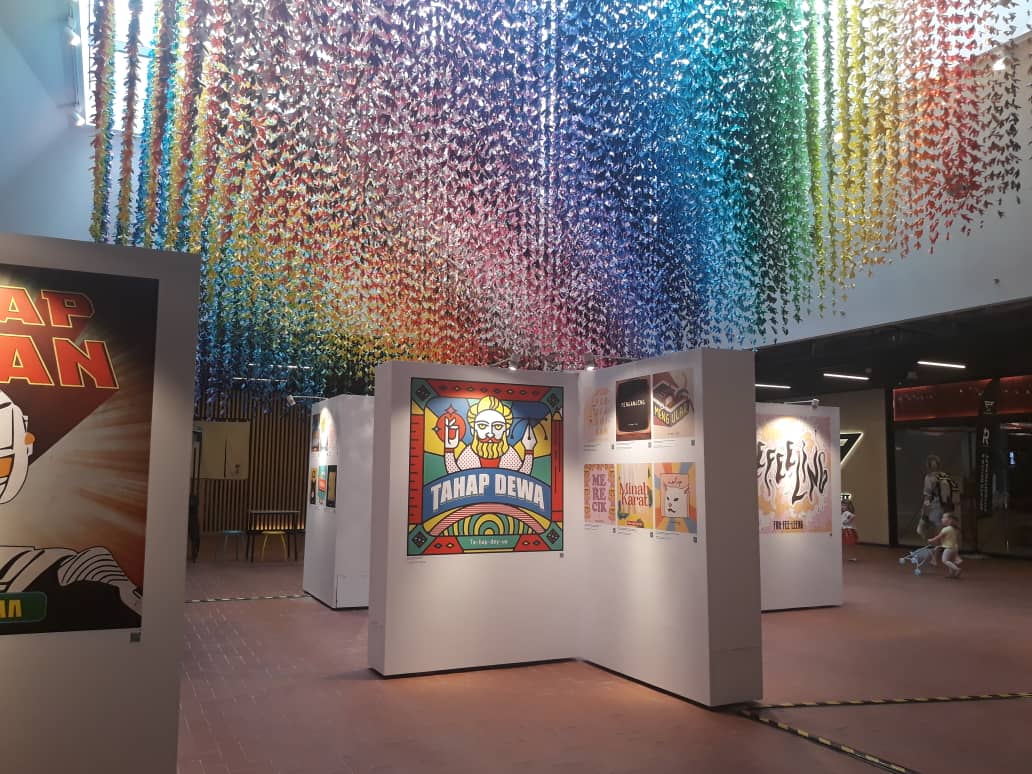
Here are some of the popular ones that have been widely used in both verbal and online chatter.
Tapau
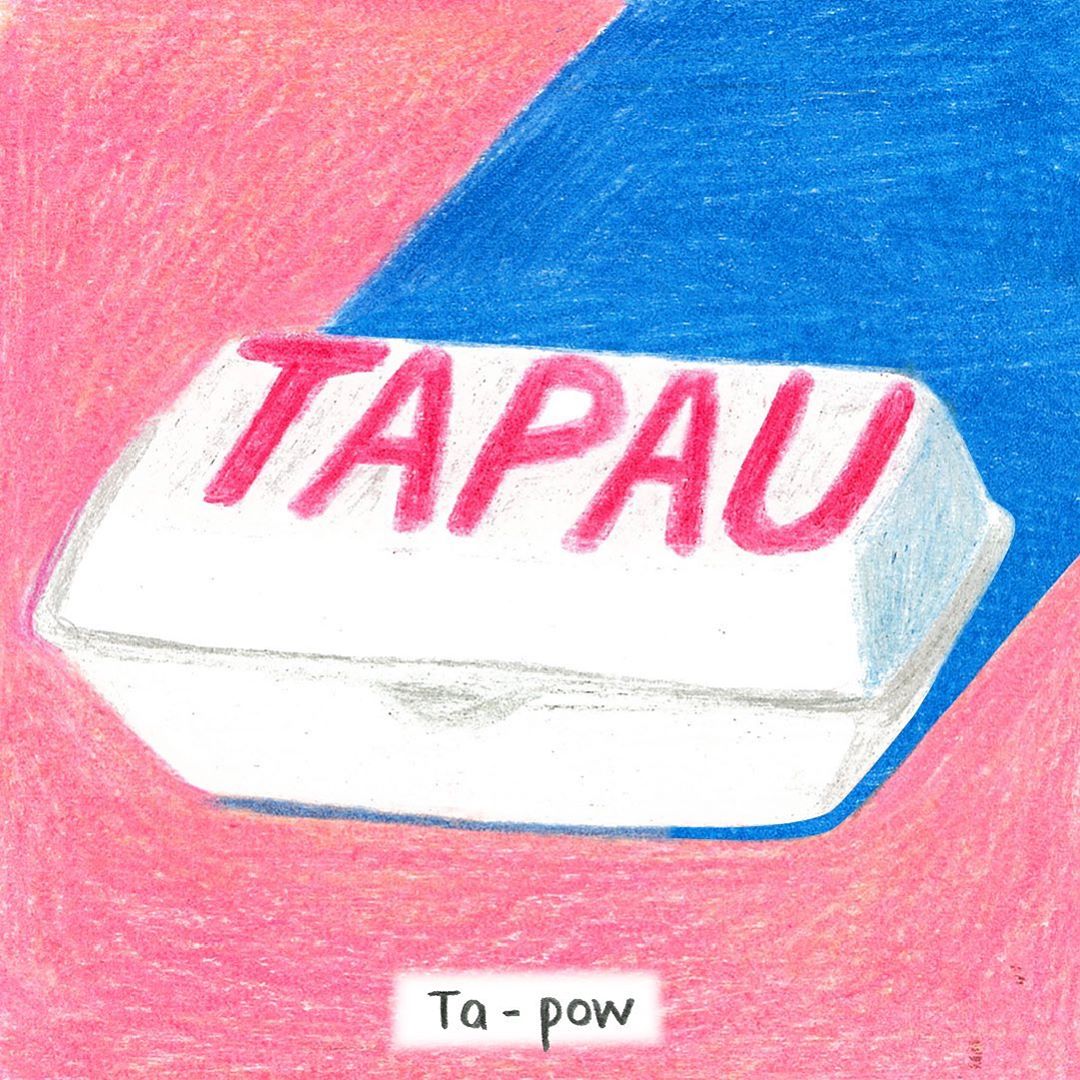
This classic Malaysian slang word is used in nearly all corners of the country, and even in Singapore.
It is derived from the Cantonese word da bao, which means to order take away food or drinks. The word was so commonly used within the Chinese community that it ended being used widely by others in Malaysia.
“For mixed-language slang, it can be attributed to our multi-racial, multi-cultural makeup,” Fazlee said. “For example, tapau is Cantonese, and since it was used greatly by the Chinese community, it probably transferred over to the Malay community through our interactions.”
“Then the word was used again and again by the Malays, and it made its way into general use,” he added.
Anywhere you go in Malaysia, including restaurants, coffee shops, or even Starbucks, the word tapau is used. For example, you could ask the barista to: “Tapau the Java Chip Frap for me, please.”
In sports, tapau could also mean being defeated in a game. For example, “My team tapau-ed theirs in yesterday’s football game.”
Mempersiasuikan
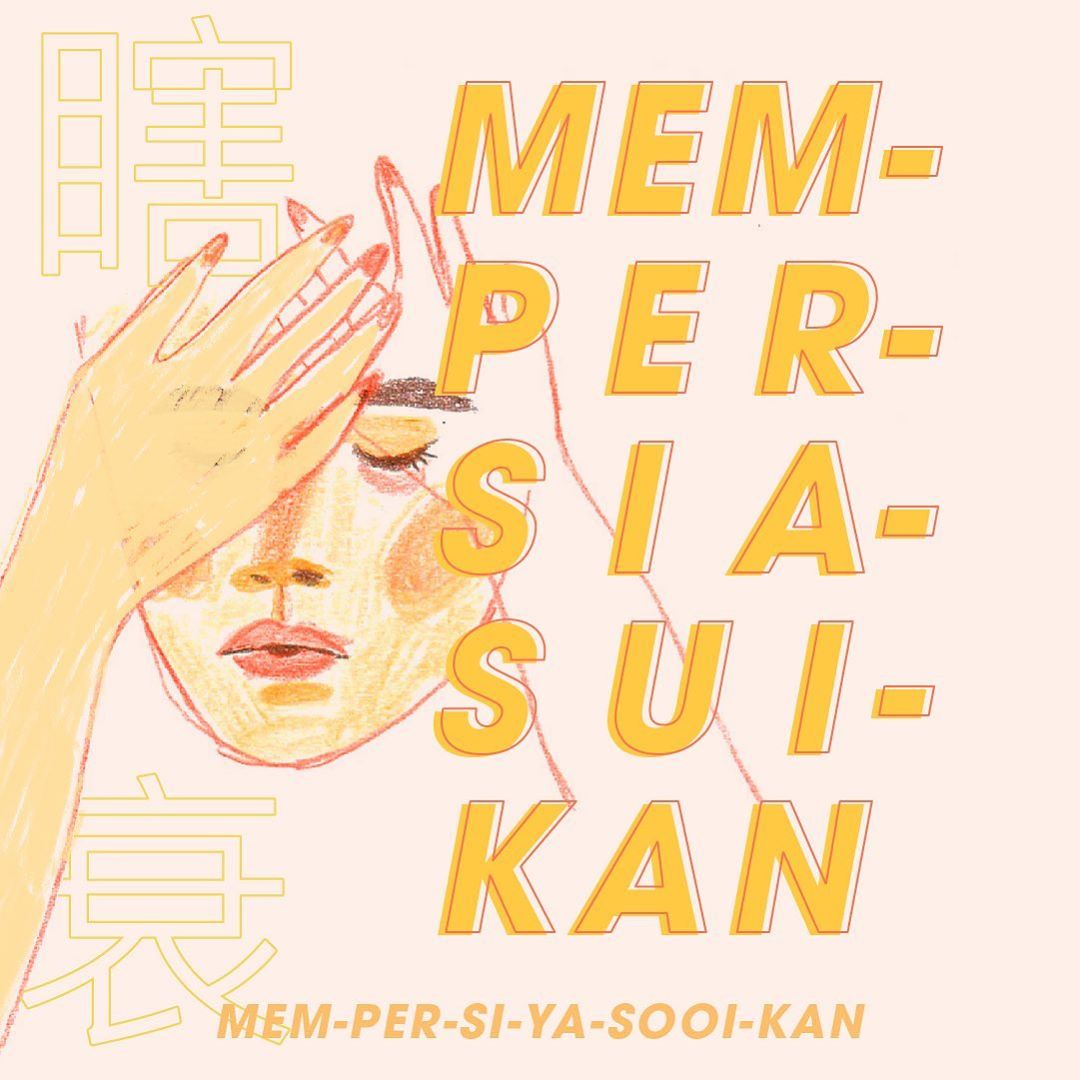
Here’s another interesting slang that combines the Hokkien word sia sui with Malay suffixes to refer to bringing shame or dishonor. For example, parents may tell their children not to fail their exams, “otherwise you will mempersiasuikan your whole family.”
Fazlee thinks the word was created by someone who could not think of the right Malay adjective to use and resulted in borrowing the Chinese word.
“It could also be that the speaker may not know a particular word in another language, so he uses a word from his mother tongue,” he said. “Mempersiasuikan could fall into this category. Take the Chinese root word, add the Bahasa Malaysia prefixes and suffixes, and you get a new word.”
Balak
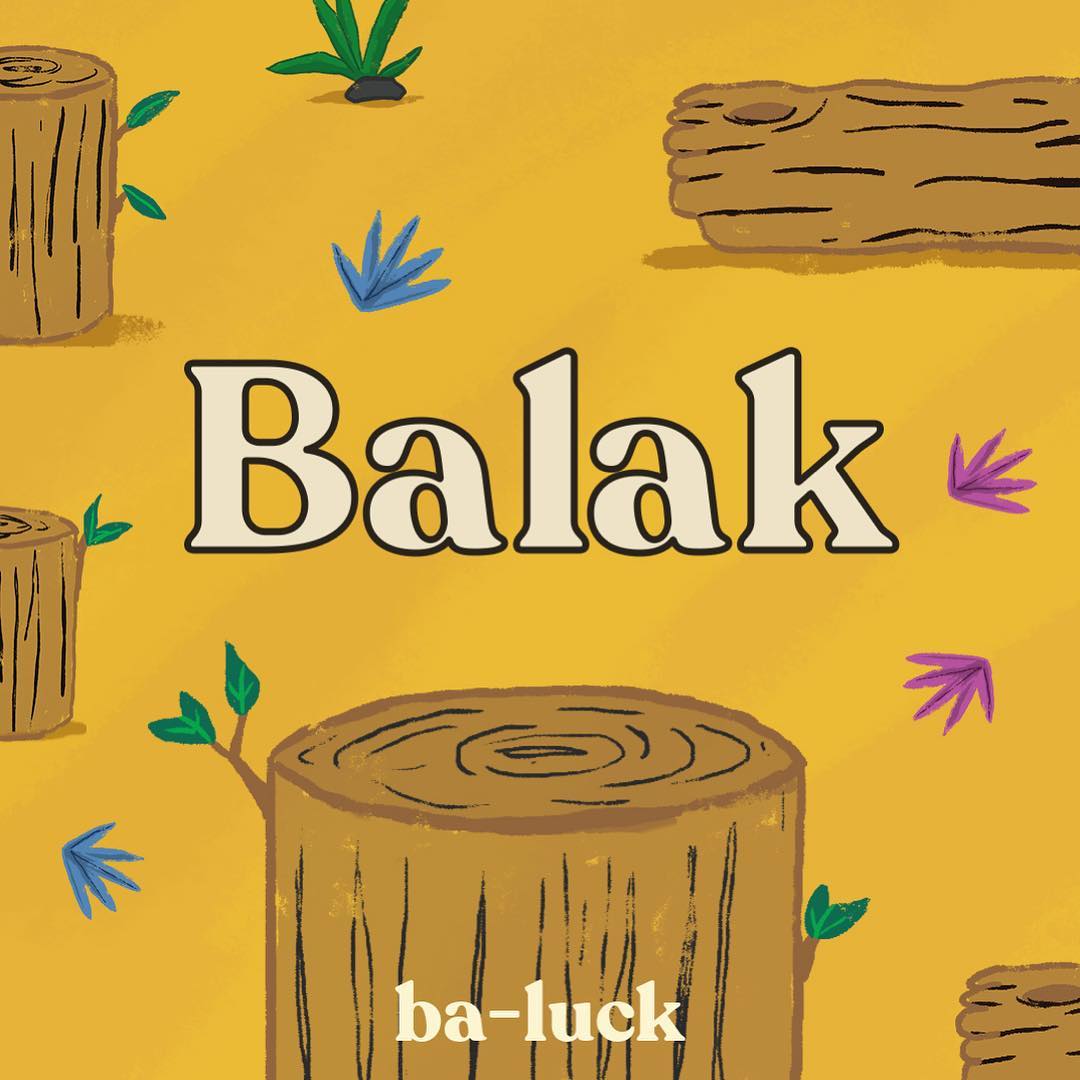
Other than “baes,” Malaysians also refer to boyfriends as “balak.” The term was popularized in the ‘90s and derived from the Malay word for timber.
Fazlee thinks that the new word association, the product of patriarchal values, shares the same description as what is deemed to be the ideal male body type, “hard” and “strong.”
“Some say that balak sounds manly, hard, and strong, just like kayu balak (timber wood),” he said. “When applied to a male person, it refers to how men are generally portrayed – hard, strong, manly man.”
In a more crude manner, balak could also refer to a man’s penis.
“We also think it refers to the genitalia. People would say things like ‘dia tu balak Halimah.” Whether they meant ‘that is Halimah’s guy’ OR ‘that is Halimah’s penis plaything’ is up to interpretation,” Fazlee added, noting that his deductions were just part of his own personal theory.
He said that it is “very hard to research the actual history” of the slang.
Uolls, trobek, kipidap
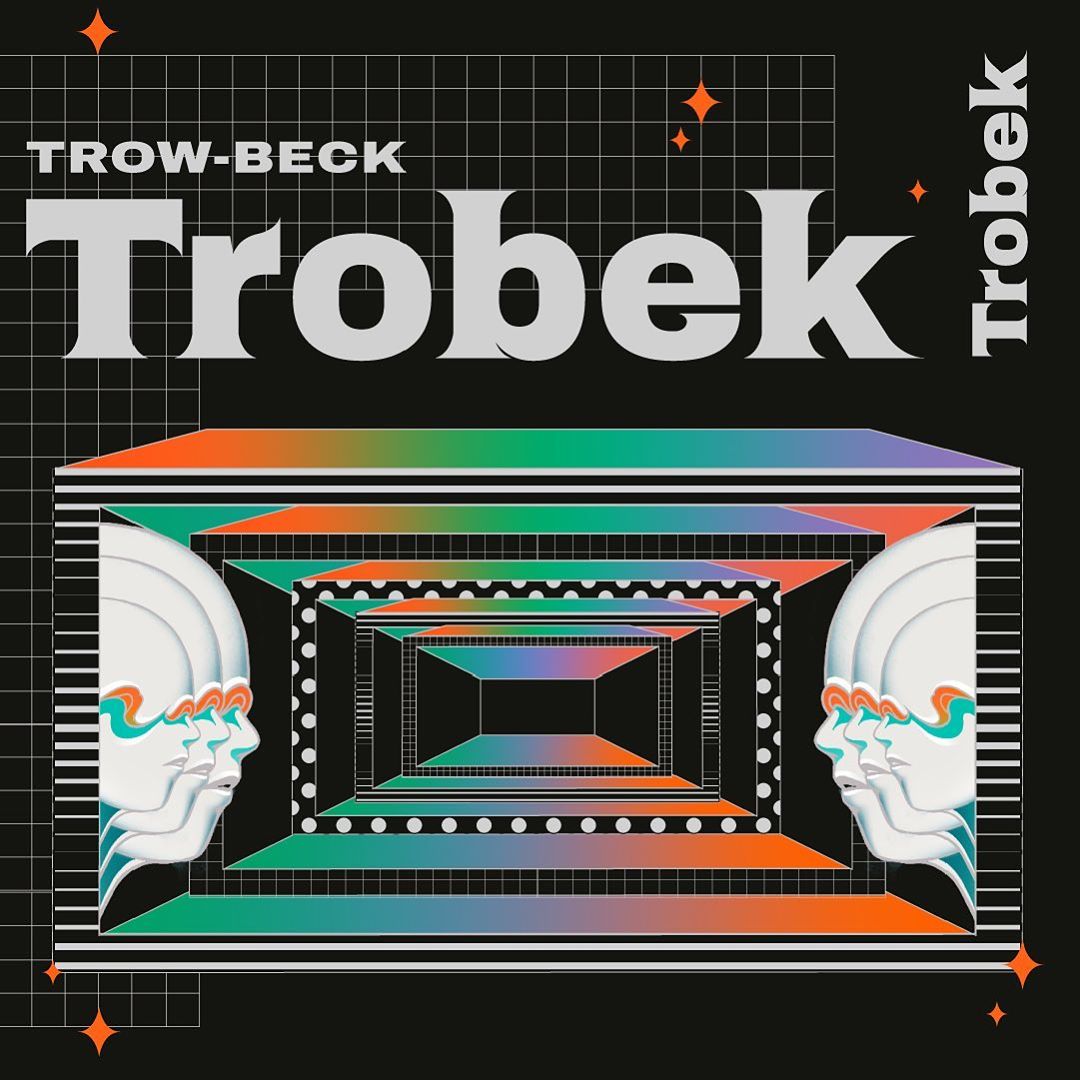
Malaysians also tend to change the spelling of English words to better suit local pronunciation or when they are too inconvenient to spell. Words like uolls (you all), trobek (throwback), and kipidap (keep it up) are just some of them.
“They probably got their start because the English version is leceh (inconvenient) or too long to spell, so a Bahasa Malaysia speaker reverts to spelling it phonetically because that’s how BM is,” Fazlee said.
“Some people welcome these additions to our slang vocabulary, and some people hate them. We think it’s a beautiful demonstration of how creative Malaysians are at turning something that is foreign into their own (identity).”
MySlangBank hopes that more Malaysian-ized English words will become popular in the following years, and we don’t doubt it.
“Hopefully, more words like this, such as wiken (weekend) and hedfon (headphones) will explode and enter the lexicon in the near future,” Fazlee said.
More Malaysian slang words:
Meroyan: To get angry about trivial matters (“You only know how to meroyan.”)
On tak on: To ask whether an event would go as planned. (“This weekend, on tak on?”)
Skema: Someone who sticks by the rules. (“These are skema students”)
Macha: Slang for “brother.” (“So macha, where will we eat today?”)
Atas: Associated with lavish, high-class lifestyle. (“She’s too atas for mamak or coffee shops.”)
Buat harta: To keep something that isn’t yours. (“I lent my pen to my friend, but I think he buat harta already.”)
Mak cik bawang: Someone, usually a woman, who likes to gossip (“OMG, these mak cik bawangs won’t leave me alone!”)
Kena sound: To get a scolding. (“If I don’t delete this comment, I will kena sound.”)
Syok sendiri: To become self-absorbed. (“His singing isn’t good, he’s just syok sendiri.”)
Hentam: To do something you’re unsure of. (“It’s OK if you don’t know what to do, just hentam.”)
Awek: Slang for “girlfriend” and opposite of balak. (“She’s my awek.”)
Other stories to check out:
Iban man gives Barbie a Borneo makeover
Brands to fuel your modern batik obsession
Malaysian doodle artist reimagines Disney characters in traditional attire
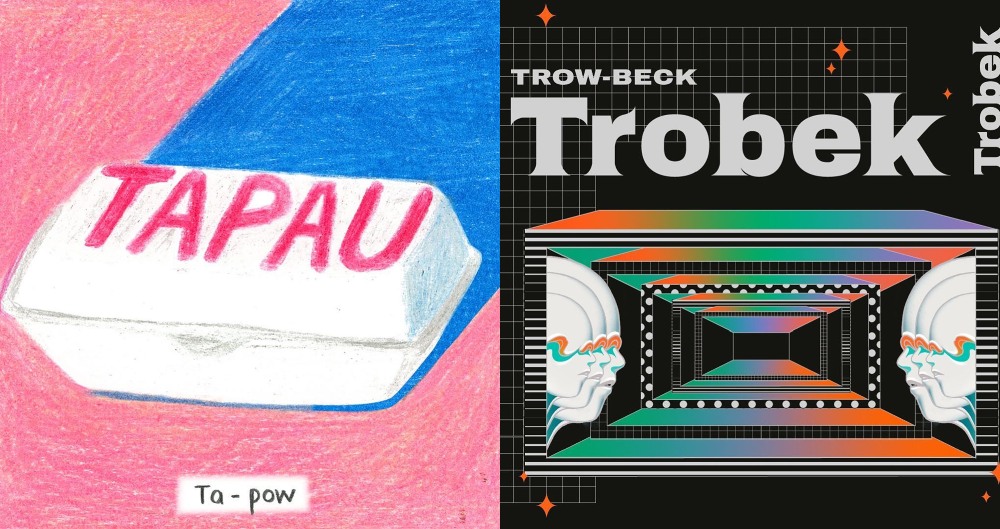




Reader Interactions